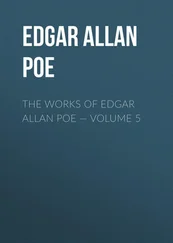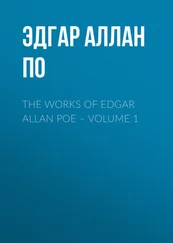Thomas Browne - The Works of Sir Thomas Browne, Volume 3
Здесь есть возможность читать онлайн «Thomas Browne - The Works of Sir Thomas Browne, Volume 3» — ознакомительный отрывок электронной книги совершенно бесплатно, а после прочтения отрывка купить полную версию. В некоторых случаях можно слушать аудио, скачать через торрент в формате fb2 и присутствует краткое содержание. ISBN: , Жанр: foreign_antique, foreign_prose, на английском языке. Описание произведения, (предисловие) а так же отзывы посетителей доступны на портале библиотеки ЛибКат.
- Название:The Works of Sir Thomas Browne, Volume 3
- Автор:
- Жанр:
- Год:неизвестен
- ISBN:http://www.gutenberg.org/ebooks/39962
- Рейтинг книги:4 / 5. Голосов: 1
-
Избранное:Добавить в избранное
- Отзывы:
-
Ваша оценка:
- 80
- 1
- 2
- 3
- 4
- 5
The Works of Sir Thomas Browne, Volume 3: краткое содержание, описание и аннотация
Предлагаем к чтению аннотацию, описание, краткое содержание или предисловие (зависит от того, что написал сам автор книги «The Works of Sir Thomas Browne, Volume 3»). Если вы не нашли необходимую информацию о книге — напишите в комментариях, мы постараемся отыскать её.
The Works of Sir Thomas Browne, Volume 3 — читать онлайн ознакомительный отрывок
Ниже представлен текст книги, разбитый по страницам. Система сохранения места последней прочитанной страницы, позволяет с удобством читать онлайн бесплатно книгу «The Works of Sir Thomas Browne, Volume 3», без необходимости каждый раз заново искать на чём Вы остановились. Поставьте закладку, и сможете в любой момент перейти на страницу, на которой закончили чтение.
Интервал:
Закладка:
CHAPTER IX
Of the food of John Baptist , Locusts and Wild-honey
Concerning the food of John Baptist in the wilderness, Locusts and Wild-honey, lest popular opiniatrity should arise, we will deliver the chief opinions. The first conceiveth the Locusts here mentioned to be that fruit which the Greeks name κεράτιον mentioned by Luke in the diet of the Prodigal son, the Latins Siliqua , and some Panis Sancti Johannis ; included in a broad Cod, and indeed a taste almost as pleasant as Honey. But this opinion doth not so truly impugn that of the Locusts: and might rather call into controversie the meaning of Wild-honey.
Opinions concerning ἀκρίδες, or the Locusts of S. John Baptist .
The second affirmeth that they were the tops or tender crops of trees: for so Locusta also signifieth: which conceit is plausible in Latin, but will not hold in Greek, wherein the word is ἀκρίς, except for ἀκρίδες, we read ἀκρόδυα, or ἀκρέμονες, which signifie the extremities of trees, of which belief have divers been: more confidently Isidore Peleusiota , who in his Epistles plainly affirmeth they think unlearnedly who are of another belief. And this so wrought upon Baronius , that he concludeth in neutrality; Hæc cum scribat Isidorus definiendum nobis non est et totum relinquimus lectoris arbitrio; nam constat Græcam dictionem ἀκρίδες, et Locustam, insecti genus, et arborum summitates significare. Sed fallitur , saith Montacutius, nam constat contrarium , Ἀκρίδα apud nullum authorem classicum Ἀκρόδρυα significare . But above all Paracelsus with most animosity promoteth this opinion, and in his book de melle , spareth not his Friend Erasmus. Hoc à nonnullis ita explicatur ut dicant Locastus aut cicadas Johanni pro cibo fuisse; sed hi stultitiam dissimulare non possunt, veluti Jeronimus, Erasmus, et alii Prophetæ Neoterici in Latinitate immortui.
The more probable what.
A third affirmeth that they were properly Locusts: that is, a sheath-winged and six-footed insect, such as is our Grashopper. And this opinion seems more probable than the other. For beside the authority of Origen , Jerom , Chrysostom , Hillary and Ambrose to confirm it: this is the proper signification of the word, thus used in Scripture by the Septuagint, Greek vocabularies thus expound it. Suidas on the word Ακρὶς observes it to be that animal whereon the Baptist fed in the desert; in this sense the word is used by Aristotle , Dioscorides , Galen , and several humane Authors. And lastly, there is no absurdity in this interpretation, or any solid reason why we should decline it, it being a food permitted unto the Jews , whereof four kinds are reckoned up among clean meats. Beside, not only the Jews , but many other Nations long before and since, have made an usual food thereof. That the Æthiopians , Mauritanians and Arabians did commonly eat them, is testified by Diodorus , Strabo , Solinus , Ælian and Pliny : that they still feed on them is confirmed by Leo , Cadamustus and others. John therefore as our Saviour saith, came neither eating nor drinking: that is, far from the diet of Jerusalem and other Riotous places: but fared coursly and poorly according unto the apparel he wore, that is of Camels hair: the place of his abode, the wilderness; and the doctrin he preached, humiliation and repentance.
CHAPTER X
That John the Evangelist should not die
The conceit of the long-living, or rather not dying of John the Evangelist, although it seem inconsiderable, and not much weightier than that of Joseph the wandring Jew : yet being deduced from Scripture, and abetted by Authors of all times, it shall not escape our enquiry. It is drawn from the speech of our Saviour unto Peter after the prediction of his Martyrdom; Peter saith unto Jesus. John 21. Lord what shall this man do? Jesus saith unto him, If I will that he tarry until I come, what is that to thee? Follow thou me; then went this saying abroad among the brethren, that this disciple should not die.
Now the belief hereof hath been received either grosly and in the general, that is not distinguishing the manner or particular way of this continuation, in which sense probably the grosser and undiscerning party received it. Or more distinctly apprehending the manner of his immortality; that is, that John should never properly die, but be translated into Paradise, there to remain with Enoch and Elias until about the coming of Christ; and should be slain with them under Antichrist, according to that of the Apocalyps. I will give power unto my two witnesses, and they shall prophesie a thousand two hundred and threescore days cloathed in sack-cloth, and when they shall have finished their Testimony, the beast that ascendeth out of the bottomless pit, shall make war against them, and shall overcome them, and kill them. Hereof, as Baronius observeth, within three hundred years after Christ, Hippolytus the Martyr was the first assertor, but hath been maintained by Metaphrastes , by Freculphus , but especially by Georgius Trapezuntius , who hath expresly treated upon this Text, and although he lived but in the last Century, did still affirm that John was not yet dead.
The same is also hinted by the learned Italian Poet Dante , who in his Poetical survey of Paradise, meeting with the soul of St. John , and desiring to see his body; received answer from him that his body was in earth, and there should remain with other bodys, until the number of the blessed were accomplished.
In terra è terra il mio corpo, et saragli
Tanto con gli altri, che l’ numero nostro
Con l’ eterno proposito s’ agguagli.
As for the gross opinion that he should not die, it is sufficiently refuted by that which first occasioned it, that is the Scripture it self, and no further off than the very subsequent verse: Yet Jesus said unto him, he should not die, but if I will that he tarry till I come, What is that to thee? And this was written by John himself, whom the opinion concerned; and as is conceived many years after, when Peter had suffered and fulfilled the prophesie of Christ.
For the particular conceit, the foundation is weak, nor can it be made out from the Text alledged in the Apocalyps: for beside that therein two persons are only named, no mention is made of John , a third Actor in this Tragedy. The death of St. John Evangelist, where and when. The same is also overthrown by History, which recordeth not only the death of John , but assigneth the place of his burial, that is Ephesus , a City in Asia minor, whither after he had been banished into Patmos by Domitian , he returned in the reign of Nerva, there deceased, and was buried in the days of Trajan . And this is testified by Jerom ,De Scriptor. Ecclesiast. by Tertullian , De Anima. by Chrysostom and Eusebius , in whose days his Sepulchre was to be seen; and by a more ancient Testimony alleadged also by him, that is of Polycrates Bishop of Ephesus , not many successions after John ; whose words are these in an Epistle unto Victor Bishop of Rome, Johannes ille qui supra pectus Domini recumbebat, Doctor optimus, apud Ephesum dormivit ; many of the like nature are noted by Baronius , Jansenius , Estius , Lipellous , and others.
Читать дальшеИнтервал:
Закладка:
Похожие книги на «The Works of Sir Thomas Browne, Volume 3»
Представляем Вашему вниманию похожие книги на «The Works of Sir Thomas Browne, Volume 3» списком для выбора. Мы отобрали схожую по названию и смыслу литературу в надежде предоставить читателям больше вариантов отыскать новые, интересные, ещё непрочитанные произведения.
Обсуждение, отзывы о книге «The Works of Sir Thomas Browne, Volume 3» и просто собственные мнения читателей. Оставьте ваши комментарии, напишите, что Вы думаете о произведении, его смысле или главных героях. Укажите что конкретно понравилось, а что нет, и почему Вы так считаете.












